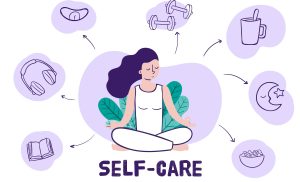Laughing Therapy: Incorporating Humor Into Self-Care
Feeling stressed and overwhelmed? Look no further than the power of laughter to ease your woes. In this article, we explore the concept of laughing therapy and how incorporating humor into your self-care routine can bring a smile not only to your face but also to your overall well-being. Discover the science behind why laughter is indeed the best medicine and learn practical tips on how to infuse more humor in your daily life. So get ready to laugh your way to a happier, healthier you!
Benefits of Laughing Therapy
Laughing therapy, also known as laughter therapy, is a powerful tool that can have numerous benefits for both your physical and mental health. The act of laughing can bring about positive changes in your body and mind, making it an excellent addition to your self-care routine.
Promotes physical health
One of the notable benefits of laughing therapy is its positive impact on physical health. When you laugh, your body releases endorphins, which are natural painkillers and mood enhancers. These endorphins can help reduce pain, boost your immune system, and improve overall physical well-being.
Laughing also improves blood flow, increasing oxygen levels in your body. Increased blood flow can improve cardiovascular health, lower blood pressure, and reduce the risk of heart disease. It also stimulates the production of nitric oxide, a compound that helps dilate blood vessels and promote a healthy circulatory system.
Reduces stress and anxiety
In today’s fast-paced and stressful world, finding effective ways to manage stress and anxiety is crucial. Laughing therapy can provide immense relief by reducing stress levels and promoting relaxation. When you laugh, your body releases tension and stress, helping you feel more at ease.
Laughing triggers the release of dopamine, a neurotransmitter associated with pleasure and reward. This increase in dopamine can counteract the effects of stress hormones, such as cortisol, and help combat the symptoms of anxiety and depression. Regular laughter sessions can be an effective natural remedy for overwhelming stress and anxiety.
Boosts mood and well-being
Laughter has the incredible ability to instantly improve your mood and overall sense of well-being. It releases endorphins and serotonin, which are hormones responsible for feelings of happiness and contentment. Engaging in laughing therapy can help uplift your spirits, increase positivity, and enhance your overall outlook on life.
Regular laughter can also have long-term effects on your mental health. It can improve self-esteem, boost resilience, and promote a more positive mindset. Incorporating laughing therapy into your daily routine can be an enjoyable and beneficial way to enhance your emotional well-being.
Scientific Evidence Supporting Laughing Therapy
While the benefits of laughing therapy may seem subjective, scientific research supports its positive effects on the body and mind. Several studies have explored the physiological and psychological changes that occur during laughter, shedding light on why it is considered a therapeutic method.
Release of endorphins
When you laugh, your brain releases endorphins, natural chemicals that promote feelings of pleasure and relieve pain. This release of endorphins during laughter has been shown to have analgesic effects, reducing physical pain and discomfort.
Endorphins act as natural mood enhancers, elevating your mood and reducing feelings of stress and anxiety. By increasing the levels of endorphins in your body, laughing therapy can provide a natural and enjoyable way to improve your overall well-being.
Improvement in blood flow
Laughing has been found to increase blood circulation and improve cardiovascular health. When you laugh, your blood vessels dilate, allowing for better blood flow throughout your body.
Improved blood circulation brings more oxygen and nutrients to your cells, supporting their optimal function. It also aids in removing waste products from your system more efficiently. By enhancing blood flow, laughing therapy can contribute to better overall health and vitality.
Activation of the immune system
Another scientific benefit of laughing therapy is its impact on the immune system. Studies have shown that laughter can stimulate the production of antibodies and activate immune cells, enhancing your body’s ability to fight infections and diseases.
Laughter increases the activity of natural killer cells, which play a crucial role in recognizing and eliminating cancerous cells. It also boosts the production of immune cells, such as T-cells and B-cells, reinforcing your immune system’s defenses.
Different Types of Laughing Therapy
Laughing therapy encompasses various techniques and practices aimed at inducing laughter and reaping its therapeutic benefits. Here are three popular forms of laughing therapy that you can explore:
Laughter yoga
Laughter yoga combines laughter exercises and deep breathing techniques to promote physical and emotional well-being. In laughter yoga sessions, participants engage in playful activities designed to induce laughter, even without relying on jokes or humor.
The sessions usually begin with warm-up exercises that involve clapping, chanting, and stretching, helping to relax the body and mind. Laughter is then encouraged through group activities and laughter exercises. Laughter yoga can be practiced individually or in a group setting, providing an atmosphere of joy and connectivity.
Laughter meditation
Laughter meditation involves focusing the mind on laughter and its positive effects. This form of meditation encourages participants to create and project laughter from within, allowing it to ripple through their bodies.
During laughter meditation, individuals use deep breathing techniques to cultivate relaxation and then tap into the playful and joyful essence of laughter. This practice can help release tension and promote a peaceful state of mind.
Laughter clubs
Laughter clubs are social gatherings where people come together to laugh intentionally. These clubs offer a supportive environment where individuals can engage in laughter exercises, share funny stories, and enjoy the contagious nature of laughter.
Laughter clubs often incorporate elements of group therapy, physical exercise, and mindfulness. They provide an opportunity for individuals to connect with like-minded people and experience the joy and healing power of laughter collectively.
How to Incorporate Humor into Daily Life
Integrating humor into your daily life can be a simple yet effective way to experience the benefits of laughing therapy. Here are a few suggestions on how you can infuse humor into your everyday routine:
Watching comedy shows or movies
Take some time to unwind and relax by watching your favorite comedy shows or movies. Laughter-inducing entertainment can help lighten your mood, offer a temporary escape, and provide a hearty laugh.
Make it a habit to include laughter-inducing content in your media consumption. Whether it’s classic sitcoms, stand-up comedy specials, or funny YouTube videos, exposing yourself to humor regularly can uplift your spirits and add more joy to your life.
Reading humorous books or articles
Expand your literary horizons by exploring humorous books or articles. The written word has the power to evoke laughter and transport you to a world of humor and wit.
Look for books written by comedic authors or delve into satirical and humorous magazines or online publications. Reading funny content can not only entertain and engage you but also give you a fresh perspective on life.
Spending time with funny friends
Surrounding yourself with funny and lighthearted friends can significantly contribute to the joy and laughter in your life. Seek out individuals who have a great sense of humor and share amusing anecdotes.
Organize social gatherings or outings with friends who always manage to make you laugh. Sharing laughter and funny experiences with others can create lasting memories and strengthen your bond with them.
Making Yourself Laugh
Finding ways to make yourself laugh can be a delightful and empowering experience. You don’t always have to rely on external sources of humor; creating your own laughter can be equally rewarding. Here are a few techniques to help you make yourself laugh:
Finding laughter in everyday situations
Train yourself to find humor in the everyday situations and challenges you encounter. Sometimes, all it takes is a shift in perspective or a lighthearted approach to a situation to find the humor in it.
Look for the absurd or amusing aspects of your day-to-day experiences, and allow yourself to find joy and laughter in unexpected places. Cultivating a sense of humor about life’s ups and downs can bring about a positive mindset and a lighter heart.
Engaging in playful activities
Engaging in activities that bring out your inner child and ignite a sense of playfulness can help you tap into genuine laughter. Whether it’s playing with pets, engaging in creative hobbies, or participating in games or sports, find outlets that allow you to let loose and have fun.
Allow yourself to be fully present in these moments of play and let the laughter flow naturally. Playfulness and laughter go hand in hand, and by embracing your playful side, you can experience the therapeutic effects of laughter firsthand.
Using humor as a coping mechanism
Humor can be a powerful coping mechanism in challenging or stressful situations. By finding the humor in difficult circumstances, you can provide yourself with a mental and emotional break.
Use comic relief, jokes, or funny perspectives to help alleviate tension and provide a temporary respite from stress. Learning to use humor as a coping mechanism can not only lighten the mood but also help you build resilience and face life’s challenges with a positive outlook.
Laughter as a Stress Relief Technique
Laughter serves as an effective stress relief technique, offering immediate relief and providing long-term benefits for managing stress. Incorporating laughter into your daily routine can help you cope with stress and promote a more relaxed state of being. Here are a few ways to leverage laughter for stress relief:
Laughter as a distraction
When you find yourself overwhelmed by stress, intentionally shift your focus by engaging in something that brings about laughter. This distraction technique can help break the cycle of stress and provide a much-needed mental break.
Watch a funny video, read a humorous book, or call a friend who always makes you laugh. By diverting your attention and immersing yourself in laughter, you can reduce stress and regain a sense of calm.
Laughter in the workplace
The workplace is often a source of stress for many individuals. Incorporating laughter into the work environment can help alleviate stress and promote a more positive atmosphere.
Encourage lightheartedness among colleagues by sharing funny stories, jokes, or engaging in friendly banter. Take breaks to watch a short comedy clip or participate in a brief laughter exercise. By infusing humor into the workplace, you can create a more supportive and enjoyable working environment.
Laughter exercises for stress relief
Specific laughter exercises can be practiced to consciously release stress and tension from your body. These exercises involve deliberate deep breathing, stretching, and engaging in laughter-inducing movements.
You can find laughter exercise routines online or attend laughter yoga or laughter club sessions to learn and practice these techniques. Regularly incorporating these exercises into your routine can help you effectively manage stress and experience the therapeutic benefits of laughter.
Humor and Mental Health
Humor plays a significant role in promoting mental health and well-being. Incorporating humor into therapy sessions and daily life can have positive effects on various mental health challenges. Here’s how humor can contribute to mental health:
Humor in therapy sessions
Therapists often use humor as a therapeutic tool to create a light and comfortable atmosphere during sessions. Humor can help build rapport between therapist and client, making it easier to address sensitive topics.
By injecting humor into therapy sessions, therapists can help clients gain new perspectives, challenge negative thinking patterns, and foster resilience. Humor can also provide a sense of relief and hope, making the therapeutic process more enjoyable and effective.
Humor as a coping mechanism for mental health challenges
Humor can be a valuable coping mechanism for individuals navigating mental health challenges. Finding humor in difficult situations can provide a temporary escape from distress and act as a buffer against emotional pain.
Using humor to cope with mental health challenges allows individuals to reframe their experiences, gain a sense of control, and experience moments of joy amidst their struggles. Humor can also foster a sense of connection and understanding, especially when shared with others who can relate to their experiences.
Using humor to promote resilience
Humor has the ability to enhance resilience, the ability to bounce back from adversity. Engaging in humor can help individuals view setbacks and challenges as temporary or surmountable, contributing to a more resilient mindset.
By embracing humor, individuals can cultivate optimism, maintain a sense of perspective, and find strength in difficult times. Humor acts as a reminder that even in the face of challenges, there is room for laughter and joy.
Laughter and Relationships
Laughter plays a crucial role in building and maintaining strong relationships. It can act as a bonding tool, diffusing conflicts, and facilitating effective communication. Here’s how laughter can enhance relationships:
Using humor to diffuse conflicts
During conflicts or disagreements, humor can be used to ease tension and promote understanding. A well-timed joke or a lighthearted comment can help break the intensity of a situation and create space for resolution.
Using humor to navigate conflicts allows individuals to take a step back, gain perspective, and approach the situation with a more open mind. It can help reduce defensiveness and encourage empathy and collaboration.
Sharing funny experiences to strengthen bonds
Sharing funny experiences or memories with loved ones can create a sense of shared joy and strengthen the bond between individuals. Recalling and retelling funny stories can elicit laughter and create a positive and enjoyable shared experience.
Laughing together helps build connections and fosters a sense of belonging. By creating shared laughter-filled moments, relationships can flourish and deep friendships can develop.
Laughter as a tool for effective communication
Laughter can break down barriers and enhance communication within relationships. It can serve as a non-threatening way to express emotions, connect on a deeper level, and build trust.
Find opportunities to share laughter with your loved ones, whether through sharing funny videos, telling jokes, or simply engaging in light-hearted banter. By using laughter as a tool for effective communication, you can strengthen your relationships and create a more joyful and supportive environment.
Laughter in Self-Care Routines
Incorporating laughter into your self-care routines can infuse a sense of joy and playfulness into your daily life. Find ways to prioritize laughter and humor during your self-care practices to enhance overall well-being. Here are a few suggestions:
Incorporating humor in skincare and beauty routines
While taking care of your skin and indulging in beauty rituals, infuse humor into the process. Use skincare products or makeup with humorous packaging or names to bring a smile to your face. Alternatively, listen to humorous podcasts or watch funny videos while pampering yourself.
Adding humor to your skincare and beauty routines can make them more enjoyable and help you relax and unwind. It can also serve as a reminder to not take yourself too seriously and embrace your natural beauty.
Laughter as a part of exercise and fitness
Finding ways to make exercise fun and enjoyable can significantly impact your motivation and adherence to physical activity. Incorporate laughter into your exercise routine by practicing laughter yoga or engaging in physical activities that naturally induce laughter.
Consider joining a laughter club or participating in group fitness classes that incorporate playful elements. By combining exercise and laughter, you can boost endorphin levels, promote overall fitness, and make your workouts more enjoyable.
Using humor to enhance relaxation techniques
During moments of relaxation and self-care, laughter can be a valuable addition. Engage in activities that make you laugh, such as watching a funny TV show or reading a humorous book, while practicing relaxation techniques like meditation or taking a warm bath.
Combining humor with relaxation techniques can help alleviate stress, promote feelings of calmness, and enhance your overall self-care experience. By finding joy and laughter during moments of relaxation, you can create a holistic and fulfilling self-care routine.
Challenges in Practicing Laughing Therapy
While laughing therapy offers numerous benefits, there can be some challenges when it comes to incorporating laughter into our lives. Here are a few common difficulties individuals may face:
Negative stigma around laughing therapy
Despite the growing recognition of the benefits of laughing therapy, there may still be a negative stigma attached to it. Some individuals may dismiss it as frivolous or ineffective, leading to reluctance in embracing this therapeutic tool.
To overcome the stigma, it is essential to educate others about the scientific evidence supporting laughing therapy and its positive impact on health and well-being. Sharing personal experiences and success stories can help challenge misconceptions and encourage others to give it a try.
Difficulty in finding laughter in tough times
During challenging times, finding reasons to laugh may seem difficult. Stress, grief, or personal struggles can dampen our ability to tap into humor and embrace laughter.
In such instances, it is essential to give yourself permission to experience and process your emotions fully. However, also be open to finding moments and opportunities for laughter. Engaging in laughter therapy or seeking out humor in small doses can be a stepping stone toward healing and resilience.
Overcoming self-consciousness
Some individuals may feel self-conscious when engaging in laughter exercises or intentionally incorporating humor into their lives. The fear of being judged or feeling silly may hold them back from fully embracing laughing therapy.
To overcome self-consciousness, it can be helpful to remember the benefits of laughter and the positive impact it can have on your well-being. Surrounding yourself with a supportive and lighthearted community or seeking professional guidance can also provide a safe space to explore and practice laughing therapy without judgment.
Incorporating laughing therapy into your life requires an open mind and a willingness to embrace joy and laughter. By understanding and addressing the challenges that may arise, you can create an environment that promotes laughter and reaps the full benefits of this powerful therapeutic tool.
In conclusion, laughing therapy offers a multitude of benefits that can positively impact both your physical and mental health. Through its promotion of physical well-being, reduction of stress and anxiety, and enhancement of mood and overall well-being, laughing therapy can be a valuable addition to your self-care routine.
Scientific evidence supports the physiological changes that occur during laughter, such as the release of endorphins, improvement in blood flow, and activation of the immune system. Different types of laughing therapy, including laughter yoga, laughter meditation, and laughter clubs, provide various avenues for engaging in this therapeutic practice.
Incorporating humor into daily life can be achieved through watching comedy shows or movies, reading humorous books or articles, and spending time with funny friends. Making yourself laugh by finding humor in everyday situations, engaging in playful activities, and using humor as a coping mechanism can further amplify the benefits of laughing therapy.
Laughter serves as a stress relief technique, both as a distraction and when applied in the workplace. Humor also plays a significant role in promoting mental health, aiding in therapy sessions, serving as a coping mechanism for mental health challenges, and promoting resilience.
Additionally, laughter can enhance relationships by diffusing conflicts, sharing funny experiences, and facilitating effective communication. Including laughter in self-care routines, such as skincare and beauty practices, exercise and fitness, and relaxation techniques, can add joy and playfulness to your self-care practices.
While challenges such as negative stigma, difficulty finding laughter in tough times, and self-consciousness may arise, understanding and addressing these obstacles can help facilitate the incorporation of laughing therapy into your life.
Laughing therapy is a powerful and enjoyable practice that can significantly contribute to your overall well-being. By embracing the benefits of laughter and actively incorporating it into your life, you can enhance your physical health, reduce stress, boost your mood, and cultivate stronger relationships. So, embrace the laughter and let it work its magic in your life!

















